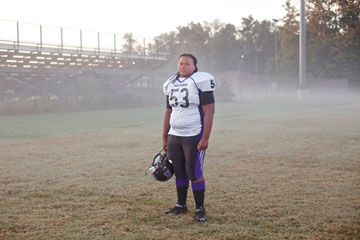
(3 of 9)
Girls are more likely to report attempting or contemplating suicide--but boys are much more likely to die from suicide. For every 100 girls in the 15-to-19 age group who commit suicide, 394 boys in the same range kill themselves, according to the CDC. High school is when the suicide rate for boys spikes to four times the rate for girls, whereas in early adolescence it is three times the rate for girls. That gender gap has been consistent since 1991. Mental-health experts have long wrestled with the question of how to narrow that gap and improve suicide prevention for boys and men, but because they are less likely to report depression, it's more difficult to help them.
"As boys enter manhood, they do, in fact, begin to talk less," says Niobe Way, a professor of applied psychology at NYU and the author of Deep Secrets: Boys' Friendships and the Crisis of Connection. Her research has shown a big decline in the use of words related to positive emotions and an increase in feelings of isolation among boys after age 15. And that isolation can lead to depression. The more boys reported not sharing their feelings with their friends and the more they reported figuring things out on their own, her research has found, the higher their scores were on depressive symptoms such as feelings of worthlessness and loss of interest in normal activities.
When the Advice Is Just Bad
Clearly, girls aren't the only ones struggling with modern adolescence--but at least most girls have developed the vocabulary to talk about the connection between sex and relationships, and they usually have an adult who believes it's critical to their health and safety to have those conversations. Many boys don't have that. Often, all they get are stern warnings based on the assumption that their overpowering sex drive makes them thoughtless or irresponsible.
"Well, they say things like 'Try to think with your other head. The bigger one,'" Ian Davis, 19, told me at a group discussion I held in a classroom at his high school in a small town east of Columbus, Ohio. "When I'm walking out the door," another boy told me, "without fail, my mother will say, 'Don't bring me back any grandbabies.'"
Treating boys as emotionally illiterate has costs. It shames them into hiding how much they want meaningful connections in their intimate relationships and leaves them unprepared to process their feelings--or convinces them they can't go to anyone for support when they're in pain. I met Sebastian Luna, 19, at his small high school in Southern California. A good-looking, well-liked kid, Sebastian says he thinks guys are more prone than girls to fall in love in high school because, as he puts it, they don't think so much about it. It just happens to them.
The first time Sebastian said, "I love you," it was to a girl he was dating whom he describes as stunningly beautiful. "She had a great personality, really fun, and I was head over heels. She was all I thought about for months," Sebastian told me. "My parents said, 'If only you could treat school with that same attention.'"
Then he started hearing rumors that she was cheating on him. Friends told him they'd seen her with someone else at a party. "I texted her and said, 'I'm coming over,'" he recalls. "Then she confessed."
